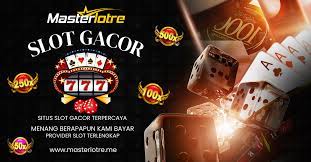Casinos have long captivated the human imagination, embodying a unique blend of thrill, luxury, and chance. These establishments are more than just places to gamble; they are vibrant hubs of entertainment, where fortunes can be won or lost in an instant. From the glittering lights of Las Vegas to the opulent resorts in Macau, exototo hold a special place in global tourism and leisure culture.
A Brief History
The origins of casinos trace back to ancient civilizations, where gambling was a part of cultural practices and social gatherings. Over time, games evolved, and gambling dens became more structured, eventually leading to the establishment of formal casinos. The word “casino” itself originates from Italian, meaning “a small house,” reflecting the early beginnings of these establishments as small, villa-like structures.
Modern-Day Casinos
Today, casinos come in various forms, ranging from grand resorts with thousands of slot machines and gaming tables to smaller, specialized venues offering niche experiences. The modern casino experience extends far beyond gambling, incorporating world-class restaurants, live entertainment, shopping malls, and luxurious accommodations. These integrated resorts aim to provide an all-encompassing entertainment experience, appealing to a broad spectrum of visitors.
Games of Chance
Central to the allure of casinos are the games of chance that they offer. From classic card games like blackjack and poker to the mesmerizing spin of roulette wheels and the electronic symphony of slot machines, each game carries its own unique appeal. The unpredictability of these games, where luck plays a significant role alongside skill and strategy, adds to the excitement and adrenaline rush experienced by players.
The Psychology of Gambling
The psychology behind gambling is complex and multifaceted. For many, casinos offer not just the prospect of financial gain but also an escape from daily routine, a chance to socialize, and an opportunity to test one’s luck against the house. The atmosphere within a casino—bright lights, ringing bells, and the constant buzz of activity—creates an immersive environment that heightens emotions and intensifies the gambling experience.
Responsible Gaming
While the thrill of gambling is undeniable, it’s important to recognize the potential risks associated with it. Responsible gaming practices, including setting limits on time and money spent, understanding the odds of games, and seeking support if needed, are crucial aspects of enjoying a casino experience responsibly. Casinos themselves often promote responsible gaming through education, support services, and self-exclusion programs to help patrons maintain control over their gambling habits.
Cultural and Economic Impact
Beyond their entertainment value, casinos play significant roles in local economies and cultures. They create jobs, attract tourism, and contribute to community development through taxes and infrastructure investments. In destinations like Las Vegas and Macau, casinos are integral to the city’s identity and global reputation, drawing millions of visitors each year and fueling a thriving hospitality and entertainment industry.
The Future of Casinos
Looking ahead, the casino industry continues to evolve with advancements in technology and changing consumer preferences. Virtual reality, online gaming platforms, and mobile applications are reshaping how people engage with gambling, offering new opportunities and challenges for traditional casino operators. Yet, the allure of the physical casino experience, with its blend of glamour, risk, and entertainment, remains timeless.
In conclusion, casinos are more than just venues for gambling; they are vibrant centers of entertainment and leisure that have captured the fascination of people around the world for centuries. Whether as symbols of luxury and opulence or as hubs of community and excitement, casinos continue to play a significant role in global culture, tourism, and entertainment, offering a thrilling escape where luck meets entertainment in every spin, deal, or roll of the dice.

